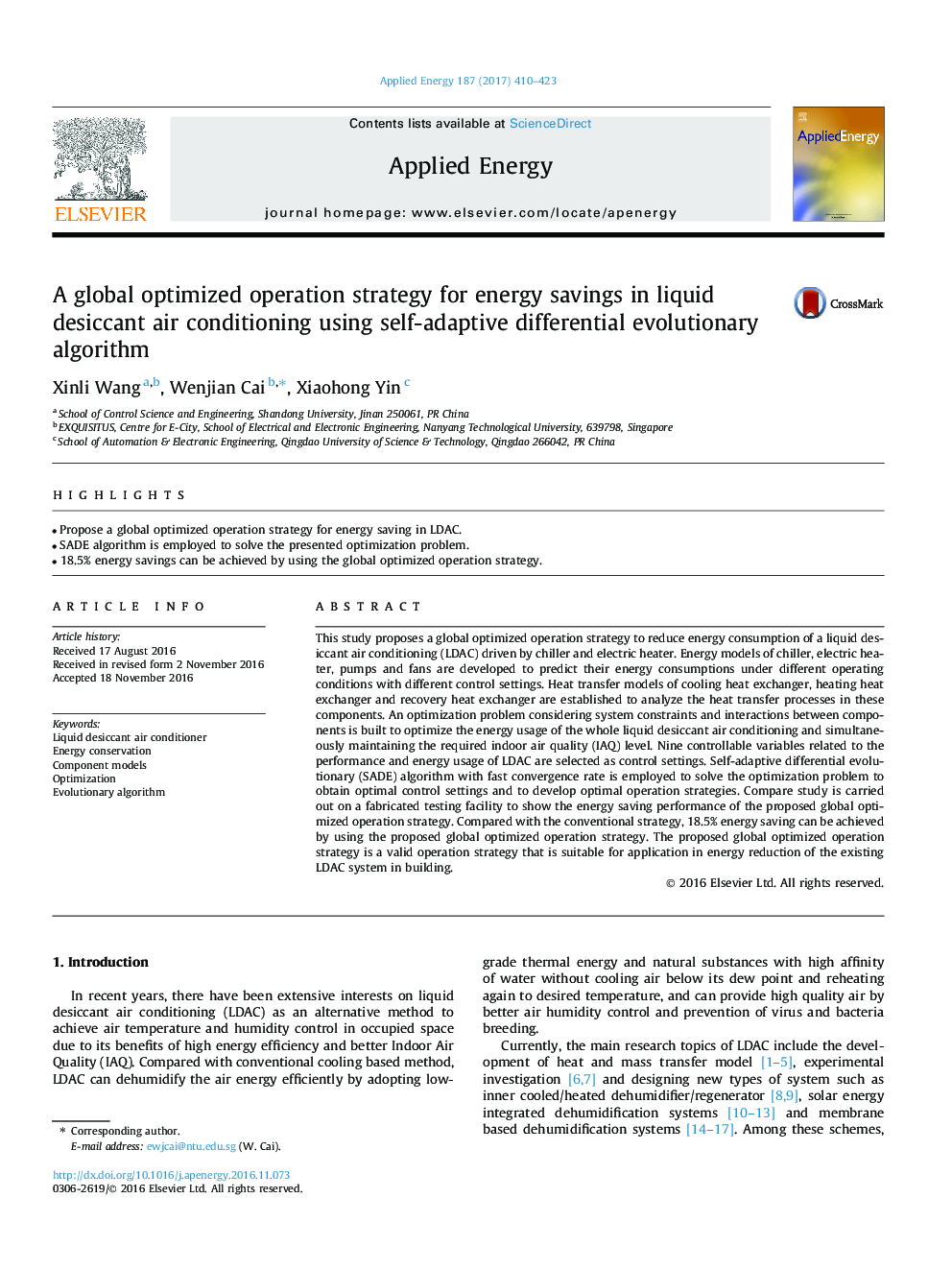| Article ID | Journal | Published Year | Pages | File Type |
|---|---|---|---|---|
| 4916688 | Applied Energy | 2017 | 14 Pages |
Abstract
This study proposes a global optimized operation strategy to reduce energy consumption of a liquid desiccant air conditioning (LDAC) driven by chiller and electric heater. Energy models of chiller, electric heater, pumps and fans are developed to predict their energy consumptions under different operating conditions with different control settings. Heat transfer models of cooling heat exchanger, heating heat exchanger and recovery heat exchanger are established to analyze the heat transfer processes in these components. An optimization problem considering system constraints and interactions between components is built to optimize the energy usage of the whole liquid desiccant air conditioning and simultaneously maintaining the required indoor air quality (IAQ) level. Nine controllable variables related to the performance and energy usage of LDAC are selected as control settings. Self-adaptive differential evolutionary (SADE) algorithm with fast convergence rate is employed to solve the optimization problem to obtain optimal control settings and to develop optimal operation strategies. Compare study is carried out on a fabricated testing facility to show the energy saving performance of the proposed global optimized operation strategy. Compared with the conventional strategy, 18.5% energy saving can be achieved by using the proposed global optimized operation strategy. The proposed global optimized operation strategy is a valid operation strategy that is suitable for application in energy reduction of the existing LDAC system in building.
Related Topics
Physical Sciences and Engineering
Energy
Energy Engineering and Power Technology
Authors
Xinli Wang, Wenjian Cai, Xiaohong Yin,
